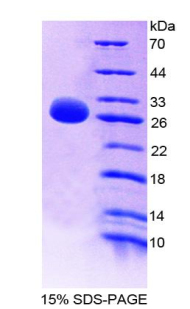Recombinant Programmed Cell Death Protein 1 Ligand 1 (PDL1) 

CD274; PDCD1LG1; B7-H; B7H1; PD-L1; PDCD1L1; PDCD1-LG1; Programed Death Ligand 1
Overview
Properties
- Product No.RPA788Mu02
- Organism SpeciesMus musculus (Mouse) Same name, Different species.
-
Applications
Positive Control; Immunogen; SDS-PAGE; WB.
If bio-activity of the protein is needed, please check active protein.
Research use only - DownloadInstruction Manual
- CategorySignal transductionTumor immunityInfection immunityImmune moleculeAutoimmunity
- Source Prokaryotic expression, Host E.coli
- Endotoxin Level<1.0EU per 1µg (determined by the LAL method)
- Subcellular LocationSecreted
- Molecular Mass 27.2kDa, Accurate 27kDa(Analysis of differences refer to the manual)
- Residues & TagsSer34~Val241 with N-terminal His Tag
- Buffer FormulationPBS, pH7.4, containing 0.01% SKL, 5% Trehalose.
- Traits Freeze-dried powder, Purity > 95%
- Isoelectric Point6.3
Share your citation
Upload your experimental result
Review
Leave a message
Loading...
Sign into your account
Share a new citation as an author
Upload your experimental result
Review
Please attach serial No. on instruction manual


Contact us
Please fill in the blank.
Name*
Organization
Address
E-mail address*
Telephone
Inquiry*
Verification code*

Sequence

Usage
Reconstitute in 10mM PBS (pH7.4) to a concentration of 0.1-1.0 mg/mL. Do not vortex.
Storage
Avoid repeated freeze/thaw cycles. Store at 2-8°C for one month. Aliquot and store at -80°C for 12 months.
Stability
The thermal stability is described by the loss rate. The loss rate was determined by accelerated thermal degradation test, that is, incubate the protein at 37°C for 48h, and no obvious degradation and precipitation were observed. The loss rate is less than 5% within the expiration date under appropriate storage condition.
Increment services
-
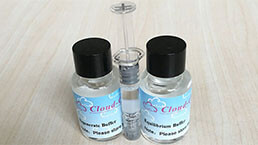 Endotoxin Removal Kit
Endotoxin Removal Kit
-
 BCA Protein Quantification Kit
BCA Protein Quantification Kit
-
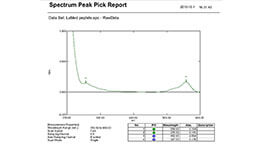 Protein Labeling Customized Service
Protein Labeling Customized Service
-
 Molecular Mass Marker for Protein
Molecular Mass Marker for Protein
-
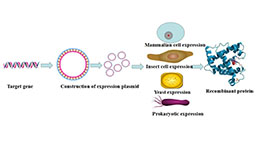 Recombinant Protein Customized Service
Recombinant Protein Customized Service
-
 Monoclonal Antibody Customized Service
Monoclonal Antibody Customized Service
-
 Polyclonal Antibody Customized Service
Polyclonal Antibody Customized Service
-
 Protein Activity Test Experiment Service
Protein Activity Test Experiment Service
-
 Immunoprecipitation (IP) Experiment Service
Immunoprecipitation (IP) Experiment Service
-
 Buffer
Buffer
-
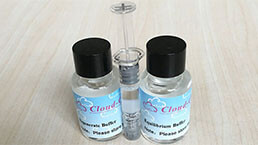 Endotoxin Removal Kit II
Endotoxin Removal Kit II
-
 Real Time PCR Experimental Service
Real Time PCR Experimental Service
-
 Spike RBD Protein (S-RBD)
Spike RBD Protein (S-RBD)
-
 Protein G
Protein G
-
 Protein A
Protein A
Citations
- Level of circulating PD-L1 expression in patients with advanced gastric cancer and its clinical implicationsNCBI: PMC3937742
- High level of soluble programmed cell death ligand 1 in blood impacts overall survival in aggressive diffuse large B-Cell lymphoma: results from a French multicenter clinical trial.Pubmed:24732592
- PD‐L1 gene polymorphisms and low serum level of PD‐L1 protein are associated to type 1 diabetes in ChilePubmed:24816853
- Ratios of T-cell immune effectors and checkpoint molecules as prognostic biomarkers in diffuse large B-cell lymphoma: a population-based studyPubMed: 26686046
- High levels of the soluble programmed death-ligand (sPD-L1) identify hepatocellular carcinoma patients with a poor prognosis.Pubmed:27039170
- Serum levels of soluble programmed cell death ligand 1 as a prognostic factor on the first-line treatment of metastatic or recurrent gastric cancerarticle:10.1007
- PD-L1 is upregulated by EBV-driven LMP1 through NF-κB pathway and correlates with poor prognosis in natural killer/T-cell lymphomapubmed:27737703
- High plasma levels of soluble programmed cell death ligand 1 are prognostic for reduced survival in advanced lung cancer.pubmed:28212990
- Soluble programmed death-ligand 1 (sPDL1) and neutrophil-to-lymphocyte ratio (NLR) predictssurvival in advanced biliary tract cancer patients treated with palliative chemotherapy.pubmed:27780932
- High post-treatment serum levels of soluble programmed cell death ligand 1 predict earlyrelapse and poor prognosis in extranodal NK/T cell lymphoma patients.pubmed:27105512
- Soluble PD-L1: A biomarker to predict progression of autologous transplantation in patients with multiple myelomapubmed:27566569
- Programmed death-ligand 1 and its soluble form are highly expressed in nasal natural killer/T-cell lymphoma: a potential rationale for immunotherapy.pubmed:28349165
- Soluble programmed death-ligand 1 as a prognostic biomarker for overall survival in patients with diffuse large B-cell lymphoma: a replication study and combined analysis of 508 patientsleu2016385a
- Plasma levels of soluble programmed death ligand-1 may be associated with overall survival in nonsmall cell lung cancer patients receiving thoracic radiotherapy.pubmed:28207525
- Inverse correlation of soluble programmed cell death-1 ligand-1 (sPD-L1) with eosinophil count and clinical severity in allergic rhinitis patientspubmed:27617656
- Plasma levels of soluble programmed death ligand-1 may be associated with overall survival in nonsmall cell lung cancer patients receiving thoracic radiotherapyPMC5319514
- Soluble Programed Death Receptor 1 Ligand (sPD-L1) in Pleural Fluid of Patients with Malignant Pleural Mesothelioma (MPM)Pdf:10.1164
- Soluble Programmed Cell Death Ligand 1 as a Novel Biomarker for Nivolumab Therapy for Non–Small-cell Lung CancerPubmed:29859759
- Increased levels of soluble programmed death ligand 1 associate with malignancy in patients with dermatomyositisPubmed:29419471
- High Serum Level of Soluble Programmed Death Ligand 1 is Associated With a Poor Prognosis in Hodgkin LymphomaPubmed:29698935
- Increased levels of soluble co-stimulatory molecule PD-L1 (B7-H1) in the plasma of viraemic HIV-1+ individualsPubmed: 30236481
- Pre-treatment serum levels of soluble programmed cell death-ligand 1 predict prognosis in patients with hepatitis B-related hepatocellular carcinomaPubmed: 30267213
- Soluble PD-L1 Expression in Circulation as a Predictive Marker for Recurrence and Prognosis in Gastric Cancer: Direct Comparison of the Clinical Burden Between …Pubmed: 30565045
- Identification of programmed cell death 1 and its ligand in the testicular tissue of micePubmed: 30578744
- Clinical significance of soluble programmed cell death-1 and soluble programmed cell death-ligand 1 in patients with locally advanced rectal cancer treated …Pubmed: 30807610
- Elevated levels of soluble PD-L1 are associated with reduced recurrence in papillary thyroid cancerPubmed: 31252406
- Prognostic implications of soluble programmed death-ligand 1 and its dynamics during chemotherapy in unresectable pancreatic cancerPubmed: 31366979
- The Clinical Significance of Soluble PD-1 and PD-L1 in Lung CancerPubmed: 31675543
- Clinical implications of APOBEC3A and 3B expression in patients with breast cancerPubmed: 32176735
- Predictive Value of Soluble PD-1, PD-L1, VEGFA, CD40 Ligand and CD44 for Nivolumab Therapy in Advanced Non-Small Cell Lung Cancer: A Case-Control StudyPubmed: 32085544
- Serum levels of soluble programmed death-ligand 1 (sPD-L1) in patients with primary central nervous system diffuse large B-cell lymphomaPubmed: 32054467
- The prognostic role of soluble transforming growth factor‐β and its correlation with soluble programmed death‐ligand 1 in biliary tract cancerPubmed: 32780918
- Prognostic impacts of tumoral expression and serum levels of PD-L1 and CTLA-4 in colorectal cancer patientsPubmed: 32577816
- Soluble PD-L1: a potential immune marker for HIV-1 infection and virological failurePubmed: 32443313
- The clinical implication of soluble PD-L1 (sPD-L1) in patients with breast cancer and its biological function in regulating the function of T lymphocyte33688997
- Prognostic prospect of soluble programmed cell death ligand-1 (sPD-L1) in cancer management34180502
- Microglial PD‐1 stimulation by astrocytic PD‐L1 suppresses neuroinflammation and Alzheimer's disease pathology34825707
- A Novel Small Cyclic Peptide-Based 68Ga-Radiotracer for Positron Emission Tomography Imaging of PD-L1 Expression in Tumors34910492
- Macrophage Associated Immune Checkpoint CD47 Blocking Ameliorates EndometriosisPubmed:35404426
- Microbial hydrogen “manufactory” for enhanced gas therapy and self-activated immunotherapy via reduced immune escapePubmed:35705974
- Assessment of the RANTES Level Correlation and Selected Inflammatory and Pro-Angiogenic Molecules Evaluation of Their Influence on CRC Clinical Features: A …Pubmed:35208526





